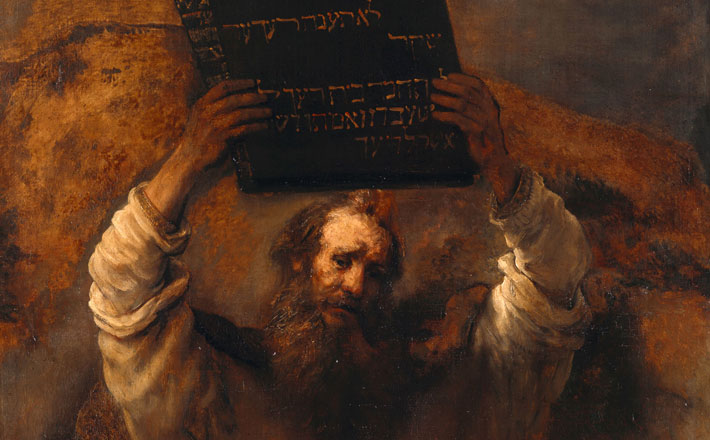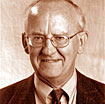Commentary on Psalm 19
It was a beautiful September day in Iowa and a group of students had gathered on one of the hills near the college.
The event was the regular Sunday evening meeting of the Lutheran Student Association (LSA). The LSA met outside during the fall, taking advantage of the beauty of Decorah until the weather turned cold. I attended the sessions regularly, partly because the dining hall was closed on Sunday evening and food was available for 50 cents a plate, and also because I knew that a particular freshman woman was a faithful LSA participant.
The speaker for the evening was the college president. I remember him talking about the two books which told about God and creation. One book was the Bible which he held in his hand. He read from Psalm 19, “the heavens are telling the glory of God.” The other book, he said, was the book of nature. He paused and pointed at the red, green, and yellow trees surrounding us and at the Oneota River moving through the valley below. Those were the two books: the book of Scripture which used words to tell about God and creation and the book of nature which through its own beauty praised God. Such is my first memory of the psalm assigned for this Sunday.
Book I: what the heavens tell (Psalm 19:1-6)
Psalm 19 falls into three parts. The words of part one (vv.1-6) recall the story of creation in Genesis 1, declaring that the heavens and the “firmament” (NRSV footnote “dome”) tell about the glory of God (Genesis 1:6-8). The biblical worldview at that time imagined the earth as flat, covered by a huge, plexiglas-like dome called the “firmament.” Beneath the flat earth was water, as was obvious every time one dug a well. Above the dome was more water, which accounted for the blue of the skies. Openings in the dome allowed the rain to pour through. When the great flood came “all the fountains of the great deep burst forth, and the windows of the heavens were opened” (Genesis 7:11; see also Psalm 148:4).
Notice that the heavens and the earth are identified as the “handiwork” of God (NRSV; NIV has “work of his hands”). The Hebrew word for God in Psalm 19:1 is El which, like “God” in English, is a generic word for a heavenly being, not the special word for the God of the Hebrews (Yahweh or LORD, as in vv. 7-9 and 14). Note also that the heavens and the “dome” are not to be identified as “gods.” Here is neither polytheism, naming the heavenly bodies as gods, nor pantheism, viewing all that exists as “god” or a part of god. Rather, the God of this psalm is the Creator, distinct from creation, and the earth and the heavens — the universe — are “the work of his hands” (NIV).
Psalm 19:4b-6 refer to the sun. Again, the sun is not a heavenly being, a “god” to be worshipped. No, God has created the sun and put it in its place. In the poet’s imagination the sun emerges each day with the freshness and happiness of a bridegroom on the first day of married life. Joyfully it runs its course, from one edge of the dome to the other, like a perpetually jubilant celestial jogger.
Book II: what the scriptures teach (Psalm 19:7-10)
With verse 7, the psalm moves out of metaphor and modulates into a more prosaic key. The focus is no longer on the world and the heavens (v. 4) but on words. The spotlight is no longer on God’s handiwork in space, but on created humans and speech. For the first time the name “Yahweh” (NRSV, LORD) is used for God. The section begins, “The instruction (Hebrew, torah) of the LORD is perfect, reviving the soul.” The psalm then fires off a series of six statements referring to God’s instruction as found in Scripture. Here are several words used to designate Scripture or Torah: decrees, precepts, commandment, ordinances. These words will revive life and provide wisdom (v. 7) and supply joy and enlightenment (v. 8). The biblical expression “fear of the Lord” (v. 9) refers to respect and trust in the Lord; the expression occurs frequently in Proverbs (1:7; 1:29, etc.).
What are these words of the Lord’s instruction worth? “They are more precious than honey, or even fine gold (10)!” declares the psalmist.
A prayer for telling and teaching (Psalm 19:11-14)
When I took required classes in Bible and in religion at college, the professor always began the class with prayer. The same was true in the classes I attended at the seminary level. When I became a teacher and pastor, I began my biblical classes the same way. Most often I used verse 14 of this psalm as the opening prayer.
Considering Psalm 19 as a whole indicates that it deals with essential themes of biblical faith. The psalm tells of nature’s praise of God the Creator (vv. 1-5). It also affirms trust in God the Forgiver (v. 12) and rock-solid Redeemer (v. 14). Finally, the psalm offers an invitation to lead a life directed by God’s torah or teaching (vv. 7-10). This final verse of the psalm remains an appropriate prayer for meditating on God’s book of nature, or God’s book of Scripture.
I conclude with some wise words from Professor Claus Westermann in comments on this psalm:
There remain only two alternatives: materialism or faith in the Creator.
Either the stars, the atoms and the earth are only matter — then we human beings must be understood as coming from matter and consisting of matter — or else the sun and earth are related to God just as we are; they are creatures. In that case the ultimate meaning of their existence is the same as that of humans: existing to the praise of God’s glory.


March 8, 2015